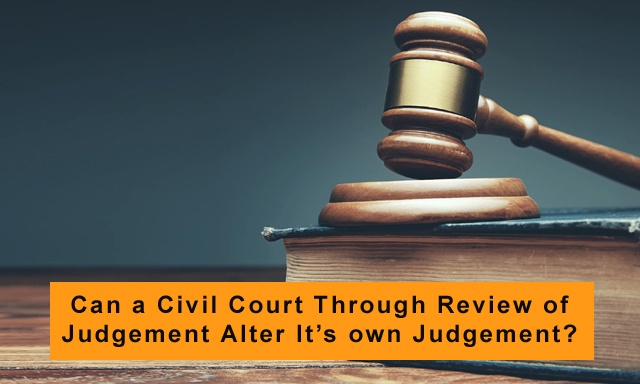Can a court review its own judgement?

In overturning a Madhya Pradesh High Court judgement to halt criminal proceedings in a dowry case, the Supreme Court stated that courts cannot change or review their own decisions or final orders after they have been issued, other than to fix clerical or mathematical errors. A bench of justices C K Thakker and D K Jain stated, 'As soon as the verdict is announced or the order is made by the court, it becomes functus officio (court ceases to have control over the case and has)...no power to review, overturn, amend or interfere with it.'
The high court's order to halt the criminal proceedings started against her husband Pawan Kumar Jain and his parents for alleged dowry harassment was challenged by Sunita Jain, who filed the appeal that resulted in the judgement. The supreme court cited its earlier decision in saying that the ability to halt a criminal case should only be used sparingly, cautiously, and in the rarest of instances.
The Supreme Court ruled that courts cannot alter or review their own rulings or final orders after they have been made, except from to correct clerical or mathematical errors, in its decision to reject a Madhya Pradesh High Court decision to terminate criminal proceedings in a dowry case.
The Supreme Court of India has the authority to examine any of its rulings or decrees, according to Article 137 of the Indian Constitution. However, this authority is constrained by the rules established by the Supreme Court in accordance with Article 145 and by any laws passed by the legislature. A review petition must also be filed within 30 days of the judgement or order for which review is requested and presented to the same Bench that rendered the verdict, according to the Supreme Court Rules, 2013 (XLVII.2).
Review vs. Appeal: The Authority's Scope.
The Court's appellate jurisdiction, or the authority to hear appeals, is separate from the power of review. The Court does not rehear the case at hand when hearing a review petition submitted in opposition to its own order or judgement, as it would in an appeal. The only valid justification for filing a review petition is to correct an apparent mistake or the severe injustice that resulted from a Supreme Court ruling. Thus, the Court's ability to examine cases is limited to those involving errors that are obvious from the record's face (criminal cases) or those that fall under the guidelines of Order XLVII of the Code of Civil Procedure (1908).